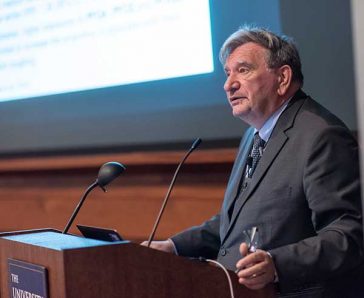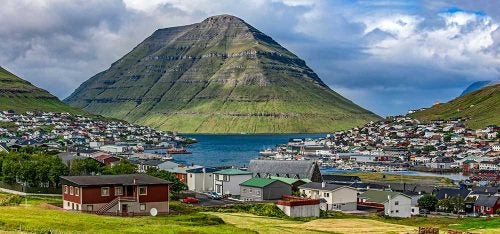
Dr. Weihe is Chair and Chief Physician of the Department of Occupational Medicine and Public Health at the Faroese Central Hospital in Tórshavn, Faroe Islands, and Adjunct Professor at the University of the Faroe Islands. Since the mid-1980s, Dr. Weihe has spearheaded epidemiological research to explore the adverse health effects of toxic chemicals that accumulate in the marine food chain. Mercury in marine mammals was the initial focus of this research, and Dr. Weihe successfully established a cohort of more than 1,000 mercury-exposed children born in the Faroes. The results of this research documented developmental neurotoxicity from early-life exposure to methylmercury, were favorably evaluated by the U.S. National Research Council and served as the principal basis for a groundbreaking assessment of the health risks of mercury exposure. Based on this assessment, the United Nations initiated negotiations to control global mercury pollution. The Minamata Convention on Mercury was the result. This Convention has now been signed by 128 countries and is a global triumph for public health.
Pál Weihe serves as Chair of the Human Health Assessment Group within the Arctic Monitoring and Assessment Program under the Arctic Council. In this role, he builds upon the medical and scientific experience he has gained in the Faroe Islands to promote the interests of populations across the far north who suffer high-level exposures to industrial chemicals. While his recommendations on avoiding highly contaminated marine foods such as pilot whale run against a Faroese tradition of centuries and have thus been controversial, his recommendations are based on the strongest science, with the noble goal to protect the rights of the Faroese and other northern people to an unpolluted environment.

Pál Weihe has published nearly 200 scientific papers. Margrethe II, Queen of Denmark, has bestowed on him the Order of the Dannebrog, a Danish order of chivalry instituted in 1671 by King Christian V. Dr. Weihe has received the Science Communication Award from the Faroese Research Council. Most recently, he contributed to the production of the award-winning documentary “The Islands and the Whales,” in which he demonstrates vividly how environmental pollution from distant sources is endangering the traditional way of life of northern peoples.
Excerpted from Ramazzini Award Ceremony
Dr. Weihe serves as co-lead of STEEP’s Childhood Risk research project focused on inflammation and metabolic changes in children developmentally exposed to PFAS. Learn more.

